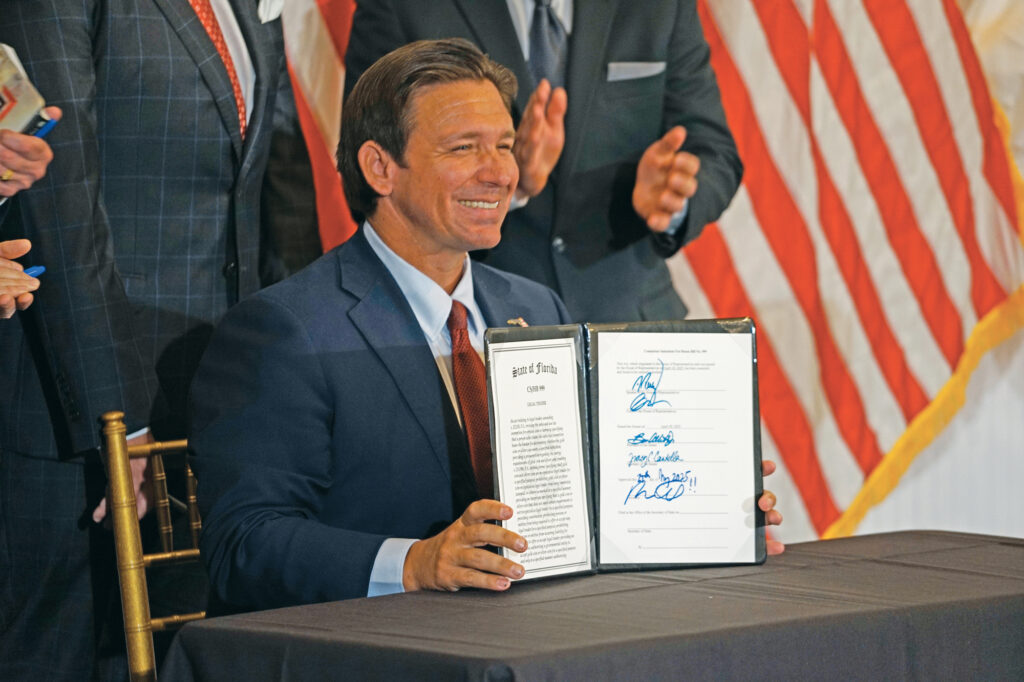By Teresa Sargeant
Reporter
Gov. Ron DeSantis signed House Bill (HB) 999 into law, a landmark legislation recognizing gold and silver — both physical and digital — as legal tender in the state, thus promoting economic independence and financial sovereignty.
Co-sponsored by State House Representative Doug Bankson (R-39), an Apopka resident, DeSantis signed the bill into legislation on May 27 at Highland Manor in downtown Apopka.
Going into effect July 1, HB 999 aims to counteract the perceived threats of Central Bank digital currency and environmental, social and governance (ESG) policies, which supporters argue undermine financial freedom.
The new law also seeks to grant alternatives to traditional fiat currency.
“You have that movement to kneecap your financial independence that is being done through the economy, but then you also just have the specter of Congress and a federal government that has been incapable of controlling the amount of money,” DeSantis said. “It’s borrowing, printing and spending, and this has been happening for many, many years.”
For over 190 years, gold and silver backed the U.S. dollar. That all changed in 1971, when President Richard Nixon took the U.S. dollar off the gold standard. Since then the currency’s buying power has declined over 90%, Bankson said.
In the last 25 years, the national debt jumped from $5.6 trillion in 2000 to nearly $37 trillion in 2025. The spending deficit and the Federal Reserve’s printing of money contributed to the inflation, which DeSantis said is like a tax because both devalue the dollar and have similar drawbacks.
Signing HB 999 into law is one off several ways the state has taken to bring financial independence to Floridians. Other efforts included Florida becoming the first state to ban ESG from pension funds, removing $2 billion from Blackrock, a major ESG supporter.
DeSantis contrasted the federal government’s actions with Florida’s fiscal responsibility, noting a 41% reduction in state debt since his governorship.
HB 999 does four key things: enact the state’s constitutional right to declare gold and silver as legal tender because “it was the states that formed the federal government, not the other way around,” Bankson said, establish the framework for depositories within the state of Florida with all the checks and balances independent auditing and fully insured holdings, enable gold and silver as a standard weight and purity to be accessed by electronic transaction or a debit card, and ensure the right between willing parties to transact legally with gold and silver.
“If you bought a home in 1979, the average cost was $75,000,” Bankson said. “If you bought that same home, that same product, now it would be $531,000. However, if you had bought that in gold in 1979 it would have been 268 ounces. Today, if you bought that home, 268 ounces. Why? Because it (gold) is a tangible thing that has true value.”
Economist and author Kevin Freeman, a proponent of HB 999, recalled the moment over 50 years ago when his father informed him Nixon’s removal of the dollar off the gold



